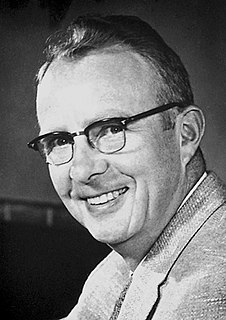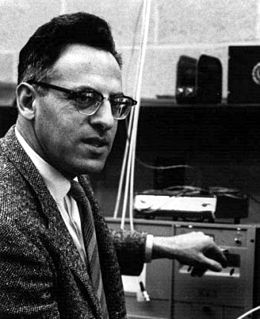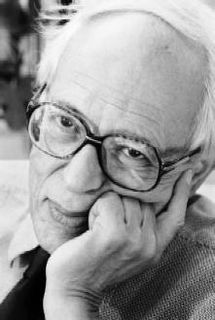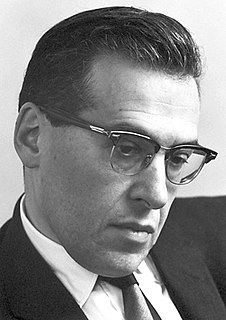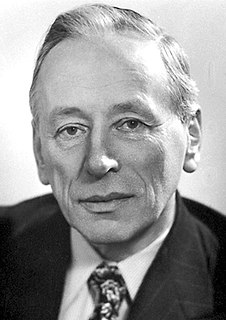A Quote by Luis Walter Alvarez
When I received my B. S. degree in 1932, only two of the fundamental particles of physics were known.
Related Quotes
The universe does not exist 'out there,' independent of us. We are inescapably involved in bringing about that which appears to be happening. We are not only observers. We are participators. In some strange sense, this is a participatory universe. Physics is no longer satisfied with insights only into particles, fields of force, into geometry, or even into time and space. Today we demand of physics some understanding of existence itself.
There is not a soul on Earth who can read the deluge of physics publications in its entirety. As a result, it is sad but true that physics has irretrievably fallen apart from a cohesive to a fragmented discipline. ... It was not that long ago that people were complaining about two cultures. If we only had it that good. today.
After my film 'The Tale of Two Sisters,' I received a lot of offers from Hollywood to direct, but because 'A Tale of Two Sisters' was a horror film, I received a lot of horror films. But I wasn't interested in working in the same genre, and the scripts I received for films in different genres were for projects that were near completion.
It's becoming clear that in a sense the cosmos provides the only laboratory where sufficiently extreme conditions are ever achieved to test new ideas on particle physics. The energies in the Big Bang were far higher than we can ever achieve on Earth. So by looking at evidence for the Big Bang, and by studying things like neutron stars, we are in effect learning something about fundamental physics.
Is the purpose of theoretical physics to be no more than a cataloging of all the things that can happen when particles interact with each other and seperate? Or is it to be an understanding at a deeper level in which there are things that are not directly observable (as the underlying quantized fields are) but in terms of which we shall have a more fundamental understanding?
Three principles - the conformability of nature to herself, the applicability of the criterion of simplicity, and the utility of certain parts of mathematics in describing physical reality - are thus consequences of the underlying law of the elementary particles and their interactions. Those three principles need not be assumed as separate metaphysical postulates. Instead, they are emergent properties of the fundamental laws of physics.
I do not doubt that all those who have received Baptism anywhere and from whomever do have Baptism, as long as it was consecrated with the words of the Gospel and they received it without pretence on their part and with some degree of faith. However, it would not avail them for their spiritual salvation if they were lacking in that charity by which they might be implanted in the Catholic Church.
